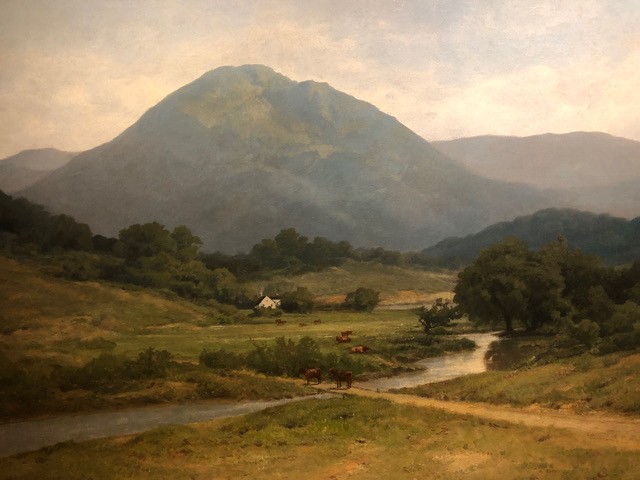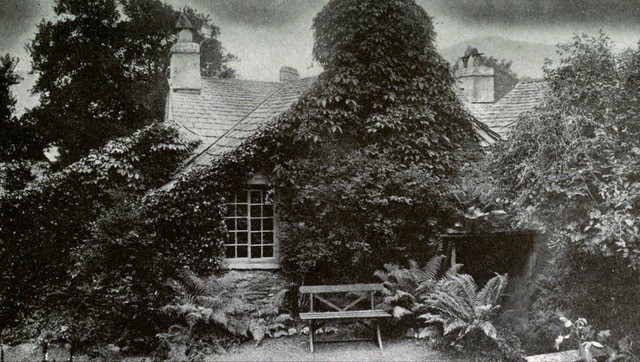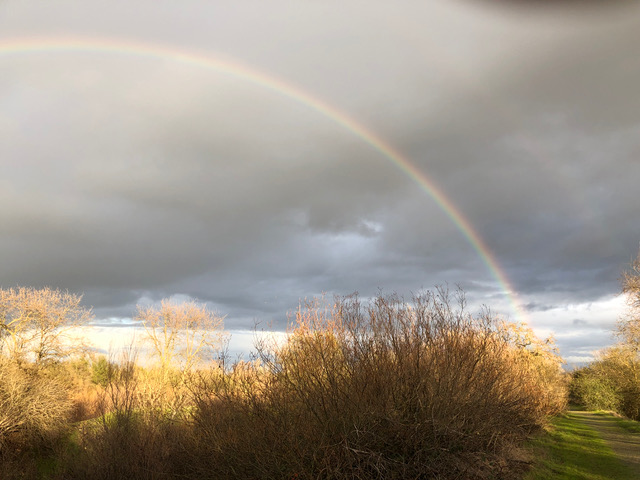“For California is a Poem!” Words by Ina Coolbrith. Photo by Bruce Donehower
Here is a summary of recent events and a look ahead to autumn, the “season of mists and mellow fruitfulness.”
- A Section for the Literary Arts and Humanities meeting of the local group in Fair Oaks, CA occurred on September 18, 2021
- A North American meeting of the Section for the Literary Arts and Humanities occurred on September 19, 2021
- Christiane Haid delivered a splendid introduction to Albert Steffen at the event sponsored by Circles for a Renewal of Culture on September 20, 2021
Our next scheduled Fair Oaks Section meeting for friends and members of the Section for the Literary Arts and Humanities is Saturday, October 2. I will send Zoom credentials to interested persons on the Friday preceding.
The next North American meeting has not yet been scheduled.
Follow Section events and meeting summaries at TheLiteraryArts.com.
“At a Glance . . .”
“Poetry Night”
In Fair Oaks, our Section meetings re-started on September 18 with poets reading original poems and poetry lovers reading a poem by a favorite poet. Click this sentence to read the original poems, copyright 2021 by the signed poets.
A North American Section Meeting
On September 19, the collegium of the Section for the Literary Arts of the School of Spiritual Science in North America held a Canada-USA meeting on Zoom. This was intended as the first of ongoing meetings and events. Watch this website for scheduling details on the next event.
The Original Vorstand and Albert Steffen
On September 20, Christiane Haid gave a lecture introduction to the life and career of Albert Steffen as part of the Circles for a Renewal of Culture presentation.
“Words, words, words!”
We are fortunate to have a feast of new publications in the Section. These include:
-
-
- The Foundation Stone Meditation and the Challenge of Our Times, edited by Arie van Amerigen and Christiane Haid. Click this sentence for more information.
- The Singing Tree: An Alchemical Fable by Bruce Donehower. Click this sentence for more information.
- Poems read by their creator-poets at the September 18, 2021 Section meeting. Click this sentence to read the poems.
-
“Tell me more . . .”
“O foolish wisdom sought in books!
O aimless fret of household tasks!
O chains that bind the hand and mind—
A fuller life my spirit asks!”
— From Longing by Ina Coolbrith (California Poet Laureate and first Poet Laureate of any state in the USA)
Michaelmas to Advent Section Meetings
We will continue our regular Zoom meetings in Fair Oaks, but during this Michaelmas term we are doing so at more andante tempo. The con brio appasionata tempo of the past eighteen months has no doubt left some ears ringing a bit. Mine, to be sure! And that poor pianoforte . . . “Ach! ¿Qué pasó?!”
Our next Fair Oaks Zoom meeting of the Section is October 2 at 7 pm PDT. I’ll send out materials and suggestions in advance to interested participants. Please contact me if you wish to receive these credentials and join the meeting.
This “semester” we have three guest speakers lined up: poet Philip Thatcher from Canada; poet, eurythmist, and translator Clifford Venho from Hawthorne Valley; and actor/playwright and Section collegium member Fred Dennehy from New Jersey. I will share details of the presentations as events draw near, including the dates and Zoom credentials. Fred and Clifford have joined our meetings previously; click their names to be directed to videos of their presentations.
In addition to guest speakers, the program for Michaelmas to Advent looks to be one of lectures, field trips, video hikes, poetry and fiction nights, discussions, salon events, and surprises. I have calendared the meetings for every two weeks at the regular time on Saturdays, beginning on October 2.

A Feast of Books
You can find several new additions to the Section booklist on the Books & Essays page.
Arie van Amerigen and Christiane Haid have published a collection of essays on the Foundation Stone meditation entitled The Foundation Stone Meditation and the Challenges of Our Time. Click this sentence to preview the book or to purchase it.
“The essays in The Foundation Stone Meditation and the Challenges of our Time will surely warm our hearts and enlighten our heads as we strive to bring about the good.”
— Herbert Hagens (from his review of the book)
Bruce Donehower (aka moi) has released a thoroughly revised edition of his novel The Singing Tree: An Alchemical Fable. This new completely revised third edition from Sage Cabin Publishers can be purchased or previewed by clicking this sentence.
“The Singing Tree can’t be put down; it is immediately engaging. This is a first-rate work, witty and observant and with a central character one can’t help but believe in and care about . . .”
— Jane Hipolito (from her review of the first edition)
And don’t forget the other essays and books on the Books & Essays page — in particular the fine collection of poems, Fine Matter, by Canadian poet Philip Thatcher that the website featured when it first went live on John Keats’ birthday, October 2020. Click this sentence to sample the poems or read a review by Fred Dennehy, a member of the collegium of the Section for the Literary Arts and Humanities.
“The poems in Philip Thatcher’s Fine Matter live and breathe in this movement. They take us through places alive with elemental forces that connect to what is stirring within us just beneath the surface, as well as swimming in the far cosmos.”
— Fred Dennehy (from his review of Fine Matter)
Also, as mentioned earlier, we had another Poetry Night at the Section meeting on September 18. Click this sentence to read the original poems by the poets.
A North American Meeting of the Section
Over the past recent years, the Section collegium has planned a few conferences in the Section for the Literary Arts and Humanities — but for various reasons these conferences have not been able to happen.
Undaunted, however, and ever optimistic — and despite the recent changes in the Section since 2019 and the Covid crisis that followed hard upon the Section changes and the Section reorganization — new members of the re-constituted collegium have forged ahead and were able to organize a Zoom meeting for the North American Section friends and members — Canada and USA. This occurred on September 19, 2021. It will be followed by other events.
At this meeting on September 19th, we focussed on the Section — its past, present, and future — and on the ongoing work of the Section.
For a History of the Section in North America, click this sentence.

Re: Turning to the Landscape
This fall I’ll be initiating a “Poets and Landscapes” theme for our Section. This will be a video exploration that explores what D.H. Lawrence called “the spirit of place” — also known as “soul” of a landscape or “genius loci.” Lawrence used this phrase as the title of Chapter One in his excellent and amusing introduction to American Literature, Studies in Classic American Literature.
How does a particular landscape and the elemental spirits that reside within that landscape influence literature? How do we work creatively with those inspirations? How has this been done by poets continually as a spiritual practice throughout the history of literature?
When I taught at the university, too often students came with the idea that literature and poetry were disembodied experiences of mind. In fact, many of them were resistant to courses in literature or the humanities because they thought such courses were: impractical, irrelevant, snarky mind games played by mandarin intellectuals, of no relevance to life as it is lived and the problems that beset us as embodied beings in a capitalist world. Even worse: some of the students thought it was just fine if literature remained disembodied! And they preferred to have schematics and “correct interpretations” that solved all the problems in a text and got them an “A”. They were eager for “A”uthority.
But poets are restless and Anarchic — and novelists too! Gosh, Sam Coleridge thought nothing of slapping on a pair of worn-out brogues and hiking miles in the night over Lake Country hills to rattle the door at Dove Cottage and roust Bill and Dottie. And few of us could keep pace with Dickens on his late night London walkabouts, I’d imagine.
“I always feel sorry for women who don’t like to walk; they miss so much — so many rare little glimpses of life.”
— Kate Chopin
For the moment, given the circumstances at hand in 2021, I conceive of this “Poets and Landscapes” initiative to begin as a video project. Sounds like an oxymoron, eh? Well, keep a weather eye on the tail of that ox and watch this space for continuing updates and materials as we walk into Michaelmas and saunter on toward our Advent spirals.

Dove Cottage, circa 1920
“What Does the Karma and History of the Anthroposophical Society Mean for the 21st Century?”
In autumn 2001, from Michaelmas to Advent, I led a twelve-week seminar in Fair Oaks with this title. It was sponsored by James Ulness. The seminar had eighteen participants. We met every week for twelve weeks for two to three hours. The course was conducted in the manner of a graduate seminar. The purpose of this seminar was to shed light and understanding on the events surrounding the expulsion of Ita Wegman and Elisabeth Vreede and many others (including Owen Barfield, by the way . . . collateral damage) and the sundering of the Society that followed upon this expulsion. The seminar in 2001 was timed for the turn of the century. I used very many texts that were only available in German at that time. Some of these texts are now available in English, but at that time they were not. The seminar occurred as an event of the Section for the Literary Arts and Humanities and was reported in the Section newsletter. I had just joined the collegium of the Section.
In the waning decades of the 20th century, when my wife and I began to research the events of the 1930s in the Society, it was next to impossible to get clear information about those events. Persons were very reluctant to talk with any specificity, or they were just unaware that anything had occurred, or they feigned unawareness, or they were indifferent or even opposed to conversation about the “unpleasant” era. To build up the seminar, I did extensive work with hard-to-obtain German texts and interviewed persons who had knowledge of those events of the 1930s.
I mention this in this meeting summary because I have the sense from recent events — for example the Zoom presentation by Circles for a Renewal of Culture — that it might be time to re-enliven this line of literary inquiry. If so, it will involve another step in the evolution and maturation of our Section meetings. The seminar materials from 2001 are still in existence and could be supplemented far more easily at the present time in 2021 — twenty years after the original Michaelmas seminar in Fair Oaks.
Personally, for what it’s worth, I have always felt that this topic resides in the province of our Section. Of course, Albert Steffen was intimately involved in the events that transpired after Rudolf Steiner’s death. But more importantly, the methodologies of literary-spiritual research and text-based critical inquiry that we bring to the table as students of literature and humanities are methodologies required for such research, some might argue.
________
“This is the excellent foppery of the world, that when we are sick in fortune, often the surfeits of our own behaviour, we make guilty of our disasters the sun, the moon and stars; as if we were villains on necessity; fools by heavenly compulsion; knaves, thieves, and treachers by spherical predominance; drunkards, liars, and adulterers by an enforced obedience of planetary influence; and all that we are evil in, by a divine thrusting on.”
— Wm. Shakespeare, King Lear, Act 1, Scene 2
“Not a whit. We defy augury. There is special providence in the fall of a sparrow. If it be now, ’tis not to come. If it be not to come, it will be now. If it be not now, yet it will come. The readiness is all. Since no man of aught he leaves knows, what is’t to leave betimes? Let be.”
— Wm. Shakespeare, Hamlet, Act 5, Scene 2
“As soon as beauty is known by the world as beautiful, it becomes ugly.
As soon as virtue is being known as something good, it becomes evil.
Therefore being and non-being give birth to each other.
Difficult and easy accomplish each other . . .
Realizing this, the sage performs effortlessly according to the natural Way . . .”
— Lao Tzu, Tao Te Ching

